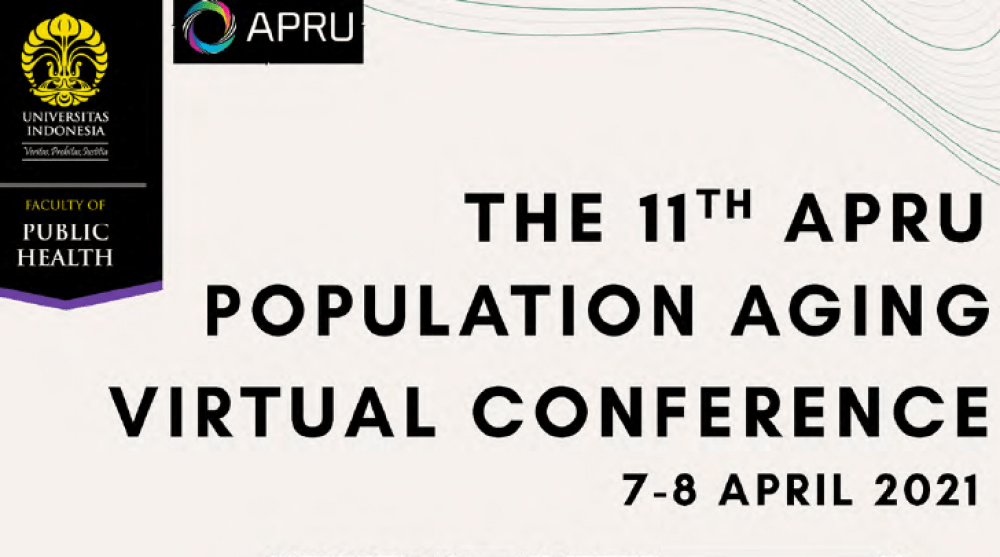APRU successfully concluded its 11th APRU Aging Population Virtual Conference on April 8, recording over 300participants from over twenty economies. Hosted by the Universitas Indonesia’s (UI) Faculty of Public Health (FPH) under the theme Challenges and Resilience Related to Aging: Surviving and Thriving toward Successful Aging, the two-day event facilitated many fruitful panel discussions on important sub-topics ranging from economics in aging societies to reproductive health in aging populations.
The conference activities consisted of keynotes, plenaries, symposiums, oral and poster presentations and showcased the first video competition in the APRU Population Aging Program.
“UI has been determined to become a world-class research university committed to academic and research innovations, and this conference closely aligns with UI’s core mission of carrying out the “tri dharma” of higher education, i.e., education, research, and community service,” said Professor Ari Kuncoro, Rector of the university, in his opening address.
The most pressing problems faced by the world’s elderly population were identified and examined by the conference’s keynote and panel speakers. UI Secretary Professor Agustin Kusumayati highlighted the importance of collaboration and cooperation in handling the problems of the elderly population. Kusumayati pointed out that the elderly are more vulnerable during the current pandemic because of comorbidity and limited interactions causingloneliness.
Professor Angelique Chan, APRU Population Aging Program Director, warned that the world is heading for a population structure dominated by the elderly (60 years and over). She cited predictions that the number of older people in Asia will increase by 60% by 2030, with the four associated fundamental problems being anxiety, loss of life purpose, loss of bodily functions, and care problems.
Professor Hiroki Nakatani from Keio University, for his part, called upon governments to initiate related programs, such as preventive insurance programs, that he sees as essential in maintaining the health of the elderly. Empowering the elderly via participating in volunteering programs is also important. “This provides the elderly with the purpose of life and community support as well as the physical activity they need to remain productive in life,” Nakatani said.
Other speakers were Professor Yudho Giri Sucahyo (Head of Smart City Study, Faculty of Computer Science, UI); Professor Sudijanto Kamso (FPH, UI), Dr. Hasbullah Thabrany, National Health Insurance; and Dr Nafsiah Mboi, (Minister of Health of Indonesia Bersatu II Cabinet and The Institute for Health Metrics and Evaluation).
Find out more information about the conference here.

